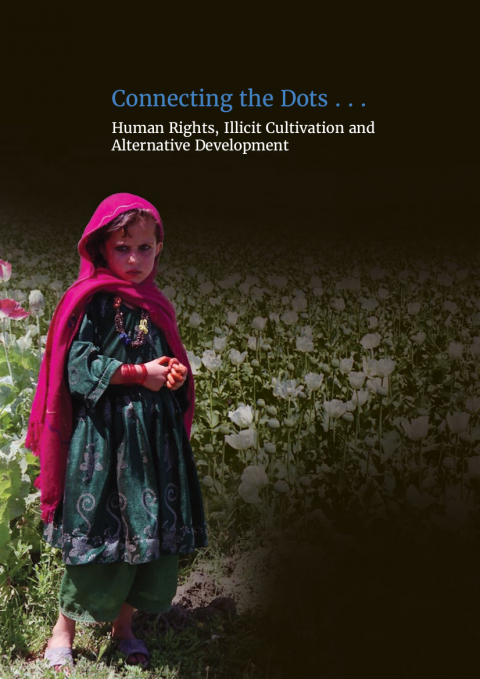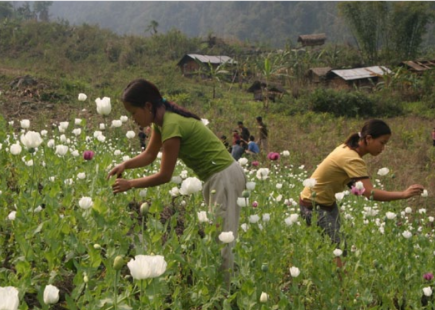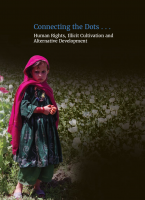Alternative development and human rights UN Commission on Narcotic Drugs (CND) – 24 October 2018
Around the world, millions of people depend on the cultivation of coca, opium poppy and cannabis for basic subsistence. The 1961 Convention introduced strict controls on the cultivation of these plants and banned centuries-old traditional medicinal, cultural and ceremonial uses. The 1988 Convention reinforced those provisions, obliging states to eradicate illicit cultivation and to impose criminal sanctions.


Romesh Bhattacharji
Already at the time of the Single Convention, however, it was acknowledged that alternative income sources were needed for those people who relied on the cultivation of these crops to make ends meet, and whose livelihoods would become “illicit” under the terms of the treaty. A transition period was therefore allowed for gradual reductions over time, 15 years for opium and 25 years for coca and cannabis. The treaty obligation to eradicate required states to take “appropriate measures”, “to the extent that they appear to be practical and can reasonably be expected of them under their special conditions”. And the treaty provisions to impose criminal sanctions refer explicitly to the possibility of providing “as alternatives to conviction or punishment” measures for social reintegration and rural development “in appropriate cases of a minor nature”.
Using this treaty flexibility, gradual reduction, proper sequencing, tolerance for local culture and community participation were relatively common features in alternative development programmes until the mid-1980s. Lessons learned in that era have nurtured the global AD debate and still today Thailand is often referred to as perhaps the most successful example. On the ground, however, the AD terrain was largely lost to the “war on drugs” that took off at the end of the 1980s and continued to escalate with dramatic consequences for rural communities.
While the discourse around AD has continued to move forward in a promising direction, practices on the ground have not followed suit. Over time, the disconnect between improving AD discourse and repressive practice only seems to have grown worse. Nowadays, graduality, proper sequencing, respect for local culture and meaningful dialogue with communities, unfortunately, have become the exception rather than the rule.
The 2015 World Drug Report also raised the alarm about diminished funding for AD: “Despite the amount of attention given to alternative development at the international level, there is a disconnect between international rhetoric and funding. Alternative development features prominently in documents of the Commission on Narcotic Drugs and the special sessions of the General Assembly on the world drug problem, but the funding for it has decreased considerably in the last few years.”
The dominance of repressive realities on the ground and the lack of commitment to alternative development by donors have turned alternative development largely into a “virtual reality”, keeping the myth alive that a humane approach to illicit cultivation exists in practice. The Transnational Institute (TNI) has been deeply involved in the debates around AD for the past 20 years, working closely with farmers. We have witnessed their commitment to find sustainable alternatives and have visited and documented hopeful examples of AD projects. But the harsh reality today is that the vast majority of farmers are confronted with forced eradication, criminalisation, displacement and violence. The political space to implement AD principles in practice is shrinking; projects that live up to the standards of today’s AD discourse, evaluations and policy documents are hard to find.
The targets of the 1998 UNGASS and the 2009 Political Declaration to eliminate or significantly reduce the global market have not been met, as clearly shown in the latest UNODC report and the IDPC Shadow Report. To the contrary, illicit cultivation has reached new record levels, triggering political responses of even more repression and eradication. Especially in circumstances where drugs and conflict dynamics are interconnected, like in Colombia, Afghanistan, Myanmar or Mexico, peace building and sustainable development require time, resources and community ownership.
Human rights arguments have thus far not played an important role in the alternative development debate. The 2016 UNGASS outcome document gave more prominence to human rights principles, and also the INCB in its latest report strongly urges Governments to adopt a human rights-based approach. “Without due consideration of human rights”, according to the INCB, “there are devastating consequences”.
Connecting the Dots... Human Rights, Illicit Cultivation & Alternative Development” brings economic, social and cultural rights to the table. The report explores in detail what the 2016 UNGASS commitment to respect, protect and promote all human rights, fundamental freedoms and the dignity of all people in the development and implementation of drug policies, truly means for policies addressing the cultivation of coca, opium poppy and cannabis. Some key conclusions are:
- Forced eradication in absence of alternative livelihoods violates people’s rights to an adequate standard of living and to be free from hunger, and in the event of conflicts between obligations under the UN Charter and the drug conventions, human rights obligations take precedence.
- When it comes to indigenous, cultural and religious rights, there is a clear tension between certain provisions in the drug control treaties and full compliance with human rights law.
- Licit uses of opium, coca and cannabis offer promising alternative development opportunities for farmers to move away from the illicit drugs market. In the fast-growing legally regulated cannabis markets, a legitimate place needs to be secured for small farmers.
- The Guiding Principles on Alternative Development and the 2016 UNGASS outcome document should be implemented in coherence with all economic, social and cultural rights, the Rights of Indigenous Peoples, the recently adopted Rights of Peasants, and the Sustainable Development Goals, to ensure that “no one is left behind”.
It is time to give human rights protection its appropriate place as the heart and core of drug policy and alternative development.
Read the full report here.
Martin Jelsma, Transnational Institute (TNI) Vienna International Centre, 24 October 2018

